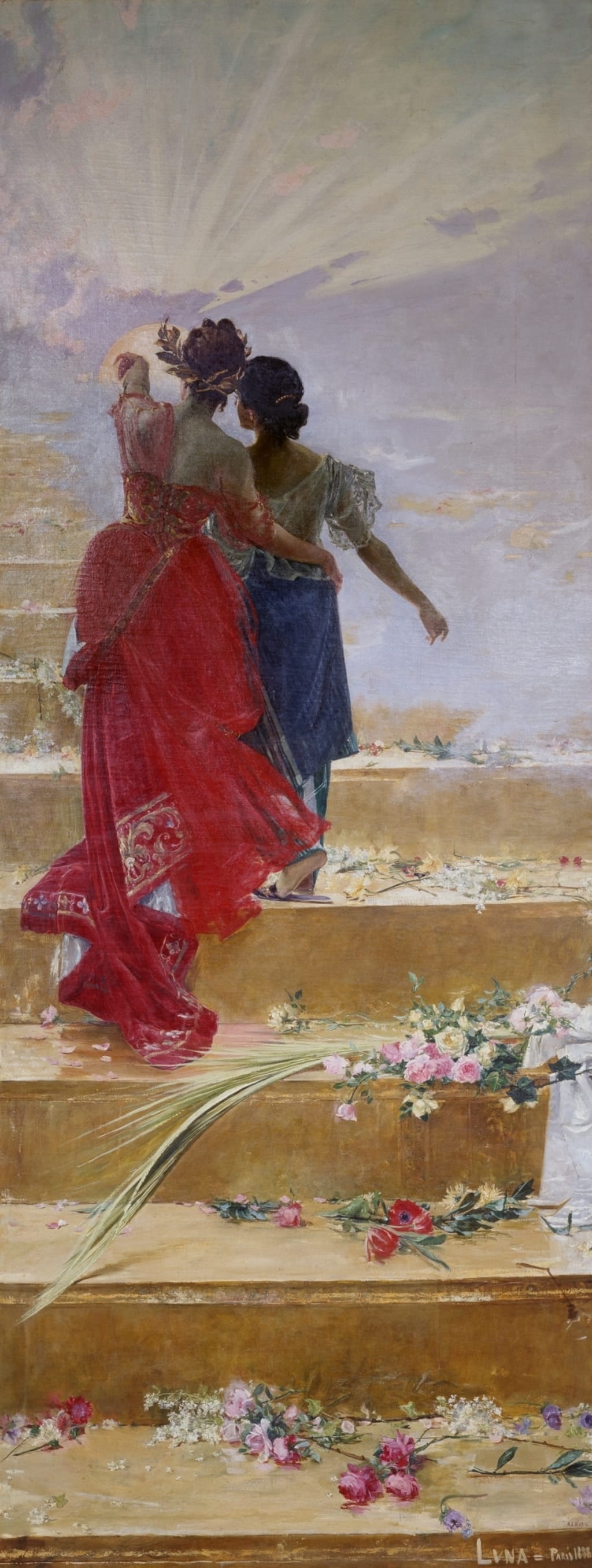In Defense of Filipino 'Hispanidad'
Sentiments of a Filipino who wants to honor his country's culture and history.

It is without a doubt, that the Philippines is home to many races and cultures. With the combination of Eastern and Western cultures, such a nation makes it so particular to that of its Asian neighbors. It would take a lot of expeditions, trade and generations that would serve as the origins of civilization in the Philippines, even before the archipelago was named like it. It is through Spain’s continuous conquest for glory the foundations of our national identity would be laid upon. The main point of confusion, however, lies upon the identity crisis of Filipinos which prevails to the present. It is so easy for us to point the numerous neglects and flaws of Spanish past without actually realizing how much we owe them our gratitude in the realms of religion, customs, language, and national identity.
One might understand the point of the claims stated by Hispanists that Spain is excessively antagonized when it comes to teaching its history today, much due to the “Black Legend” propaganda brought by the Americans and other opponents of Spain at the time. Of course, it is acknowledged that history is not bias when it comes to one’s reputation, it is its obligation to acknowledge and honor one’s achievements, and justly write down one’s neglects, so it will be the case for history to give account of Spain, for how long are its history of achievements on our own nation is often overlooked.
So, it shall be stated how excessively emphasized in our school curriculum the many wrongs of Spain. It is one thing to mention the events that unfolded in the years 1521 and 1565, then skip everything that has been built upon in the last 300 years until the last decades of the Philippines as a province (colony, for your preference) of Spain. The nation’s neglect towards its own history is astounding.
It seems that to the perspective of the writer, it is to his dismay on how prominent Spanish figures are usually reduced to the mere stereotypical appearance of a fat-bellied balding man in his priestly vestments and men in uniform, in their ageing, frowned faces, all while we overlooked that these men of status, are also the very ones who defended the natives from the mistreatment of their fellow Spaniards, and enacted through the ancient “Laws of the Indies”, which also defined the occupation and way of life of those living under the dominion of the Spanish crown. It was a defining moment, in which it recognized and served as a foundation for human rights.
It must never be denied, how in every sector of our society and its foundations, encrypts a certain vestige of Spain, and its integral role in combining with our native customs shaped the Filipino identity. One might ask if it weren’t for their influence, wouldn’t our people remain to enslave their own to this day? Will it not that the concept of justice through the ordeal of hot boiling water be retained? Nor the concept of formal education be introduced, or that of modern law and order? Having our early educational institutions established in the early years of their conquest is a testimony of their intentions of building a new civilization. Being that we are the first country in Asia to ever receive public education through the Royal Decree of 1863, it is an acknowledgement of progress, that we are not conquered to be deprived of such knowledge, nor for that knowledge to kept solely for oneself. Moreover, if it weren’t for this decree, one could’ve never seen the Filipino identity to take shape through our 'Ilustrados', whose educational pursuits would eventually pave the way for us the ideas of national consciousness.
On the other hand, it is not solely on the hands of Spaniards whom we owe much of our cultural development, but also to the will of the people who handed their wisdom and expressions passing by one generation to another. Such expressions through the various fields of art like painting, sculpture and music, despite the vestiges of colonialism, are to be known and honored. Surely when one thinks of a rondalla ensemble, the graceful paces of our folk dances, it comes to mind that these customs are distinctly Filipino, and that they do not exist immediately out of nowhere. It is a product of an evolutionary process of trading cultures between two nations and making it as their own. With so many diverse cultures, ours and that of Spain’s influence should not be seen as contrasting, but rather as compliments.
The foundations of our national identity, along with other Hispanic countries, wouldn’t be realized if it weren’t for the intervention of Spain, regardless of its flaws and achievements. There are so many things that are worth keeping for even in the present times, our Christianity, our own personal heirlooms and customs we have honored and preserved until the present. For the people to wish the death of this part of our national identity would meant our own cultural suicide, in which ourselves are responsible. By despising it meant despising our very ancestors who have persevered so much in preserving it as part of their identities as Filipino, we lose ourselves by doing so. There is truth on what was said by the renowned Filipino author Nick Joaquin himself, “Before 1521, we could have been anything and everything not Filipino, after 1565 we can be nothing but Filipino.”
Along the lines of current issues that our nation encounters at present in the fields of education, culture and sovereignty, one could wonder, should they be alive to this day, the very people who have fought for our national identity and the re-affirmation of our rights, how will they perceive us? Were their deaths lie in vain? What more on how the Spanish figures who have contributed so much to lay the foundations of our nation-state, would recognize our land as it gradually gets deprived of its own identity? Are their achievements been brought to naught?
About the Creator
Enjoyed the story? Support the Creator.
Subscribe for free to receive all their stories in your feed. You could also pledge your support or give them a one-off tip, letting them know you appreciate their work.





Comments
There are no comments for this story
Be the first to respond and start the conversation.